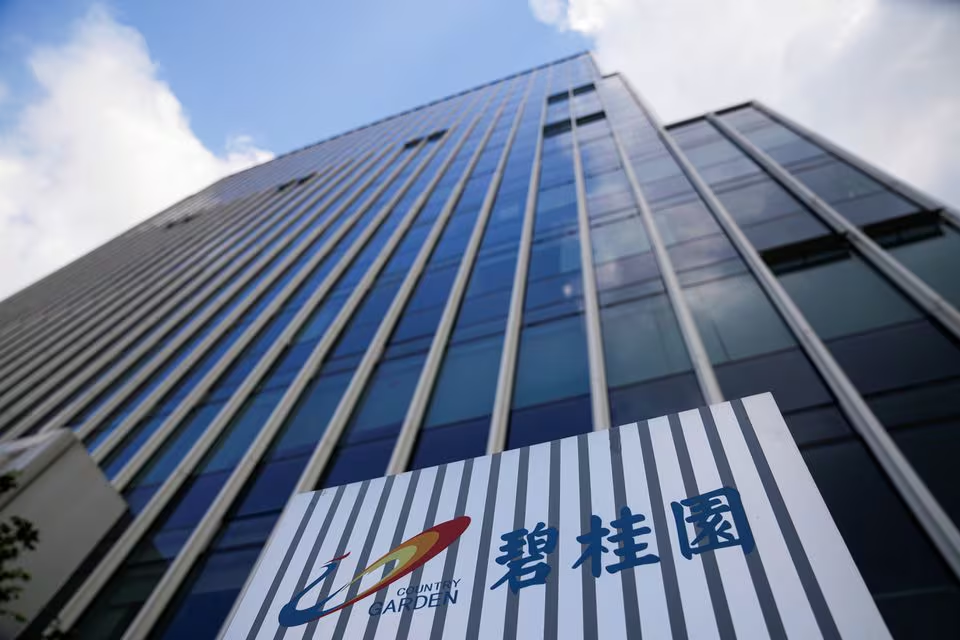
Country Garden has total liabilities of $200 billion. That includes $11 billion offshore debt now deemed to be in default.
The people did not want to be named as the information is confidential. Deloitte and Allen & Overy declined to comment.
Country Garden, Bank of China and China Construction Bank did not immediately respond to a request for comment.
Country Garden’s financial trouble has worsened China’s property sector debt crisis that started in 2021 after a regulatory crackdown on debt-fuelled construction triggered a liquidity squeeze.
Several developers, including China Evergrande Group, opens new tab, have defaulted on billions of dollars of debt since then, and have either launched or are in the process of starting debt restructuring processes to avoid facing bankruptcy or liquidation proceedings.
Chinese Premier Li Qiang said on Tuesday Beijing would try to stabilise the sector with targeted measures while providing financing to “justified” projects, as the industry’s challenges will remain a drag on economic growth.
RESTRUCTURING TALKS
Country Garden said last Wednesday it would “continue to proactively communicate and work with its offshore creditors on its restructuring plan”. It said it planned to announce terms of the plans to the market “as soon as practicable”.
Creditors and lenders typically hire legal and financial advisers during restructuring processes to represent them during long-running negotiations. Country Garden bondholders are being advised by PJT Partners (PJT.N), opens new tab and Kirkland & Ellis.
Country Garden’s advisers are establishing an online portal with the developer’s financial data and non-public information for bondholders, banks and their advisers to access during the restructuring process, two of the people said.
Separately, a firm to carry out a liquidation analysis is also due to be appointed soon, they added.
The liquidation petition against Country Garden ramps up pressure on the developer to come to the negotiating table for debt restructuring talks, some its offshore creditors, advisers, and analysts have said.
“It’s a pressure tactic by a certain slice of investors who are not participating in the bondholder committee in the restructuring process … and their fear is that unless they file this petition they’re going to end at the end of the queue,” said Edward Al-Hussainy, head of emerging market fixed income research at Columbia Threadneedle, a Country Garden bondholder.
Dragged by an overall property market slump, Country Garden reported its worst monthly sales on record last month at 3.7 billion yuan. The firm’s January-February sales this year plunged 80% from a year ago.
The developer said on Monday that 217 of its residential projects had been included in the “whitelist” suitable for development loans, the most among peers.
The so-called whitelist mechanism was introduced by policymakers in January in a bid to add liquidity to the sector.
The lenders’ group has about $4 billion worth of credit exposure to Country Garden, two of the people said. The group includes Bank of China (601988.SS), opens new tab and China Construction Bank (601939.SS), opens new tab, one of them added.
Country Garden’s debt revamp process started in recent weeks with the hiring of advisers by the developer and a so-called ad-hoc offshore bondholders’ group, after it missed a $15 million bond coupon repayment last October.
Country Garden has total liabilities of $200 billion. That includes $11 billion offshore debt now deemed to be in default.
The people did not want to be named as the information is confidential. Deloitte and Allen & Overy declined to comment.
Country Garden, Bank of China and China Construction Bank did not immediately respond to a request for comment.
Country Garden’s financial trouble has worsened China’s property sector debt crisis that started in 2021 after a regulatory crackdown on debt-fuelled construction triggered a liquidity squeeze.
Several developers, including China Evergrande Group (3333.HK), opens new tab, have defaulted on billions of dollars of debt since then, and have either launched or are in the process of starting debt restructuring processes to avoid facing bankruptcy or liquidation proceedings.
Chinese Premier Li Qiang said on Tuesday Beijing would try to stabilise the sector with targeted measures while providing financing to “justified” projects, as the industry’s challenges will remain a drag on economic growth.
RESTRUCTURING TALKS
Country Garden said last Wednesday it would “continue to proactively communicate and work with its offshore creditors on its restructuring plan”. It said it planned to announce terms of the plans to the market “as soon as practicable”.
Creditors and lenders typically hire legal and financial advisers during restructuring processes to represent them during long-running negotiations. Country Garden bondholders are being advised by PJT Partners (PJT.N), opens new tab and Kirkland & Ellis.
Country Garden’s advisers are establishing an online portal with the developer’s financial data and non-public information for bondholders, banks and their advisers to access during the restructuring process, two of the people said.
Separately, a firm to carry out a liquidation analysis is also due to be appointed soon, they added.
The liquidation petition against Country Garden ramps up pressure on the developer to come to the negotiating table for debt restructuring talks, some its offshore creditors, advisers, and analysts have said.
“It’s a pressure tactic by a certain slice of investors who are not participating in the bondholder committee in the restructuring process … and their fear is that unless they file this petition they’re going to end at the end of the queue,” said Edward Al-Hussainy, head of emerging market fixed income research at Columbia Threadneedle, a Country Garden bondholder.
Dragged by an overall property market slump, Country Garden reported its worst monthly sales on record last month at 3.7 billion yuan. The firm’s January-February sales this year plunged 80% from a year ago.
The developer said on Monday that 217 of its residential projects had been included in the “whitelist” suitable for development loans, the most among peers.
The so-called whitelist mechanism was introduced by policymakers in January in a bid to add liquidity to the sector.




Leave a comment